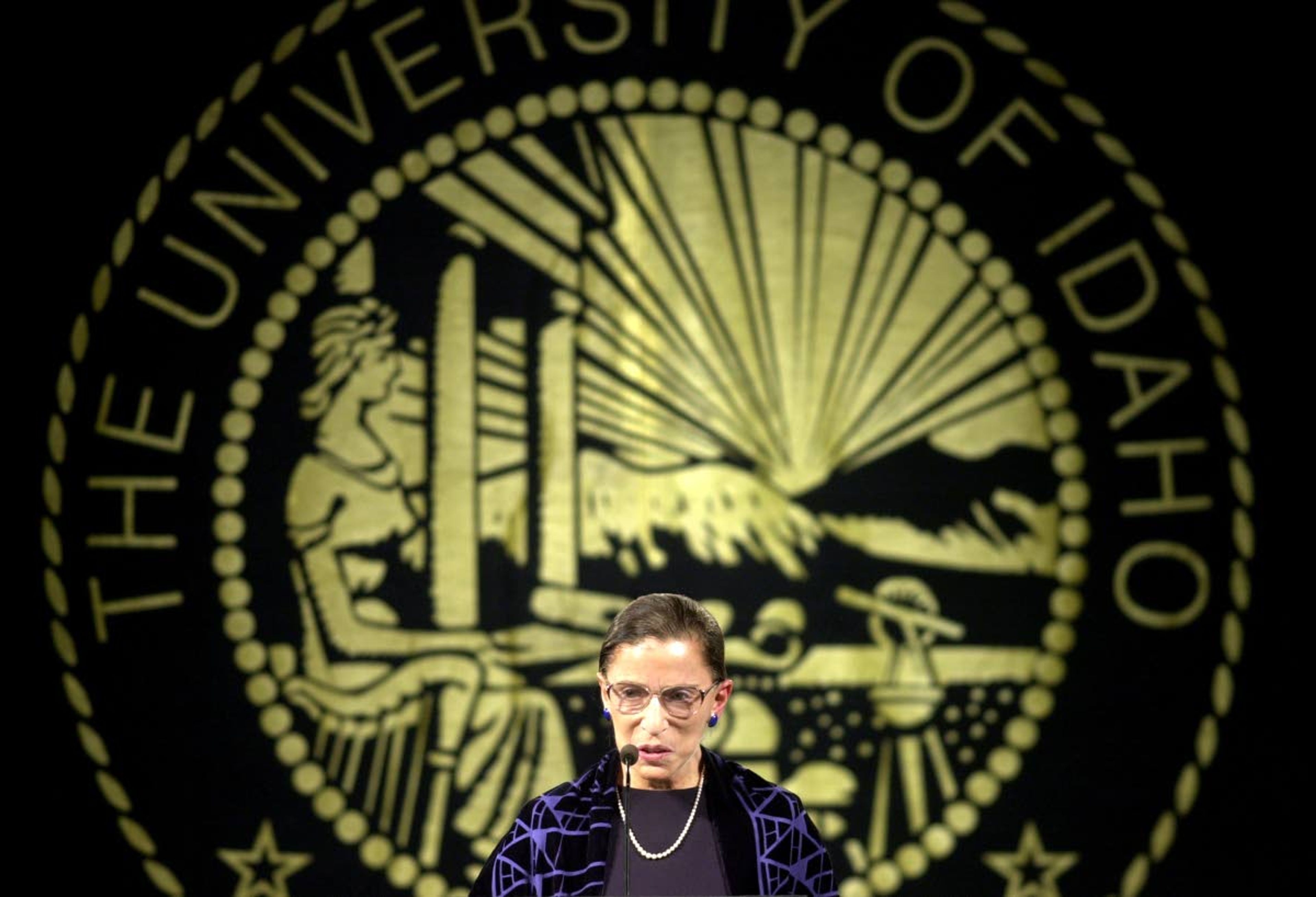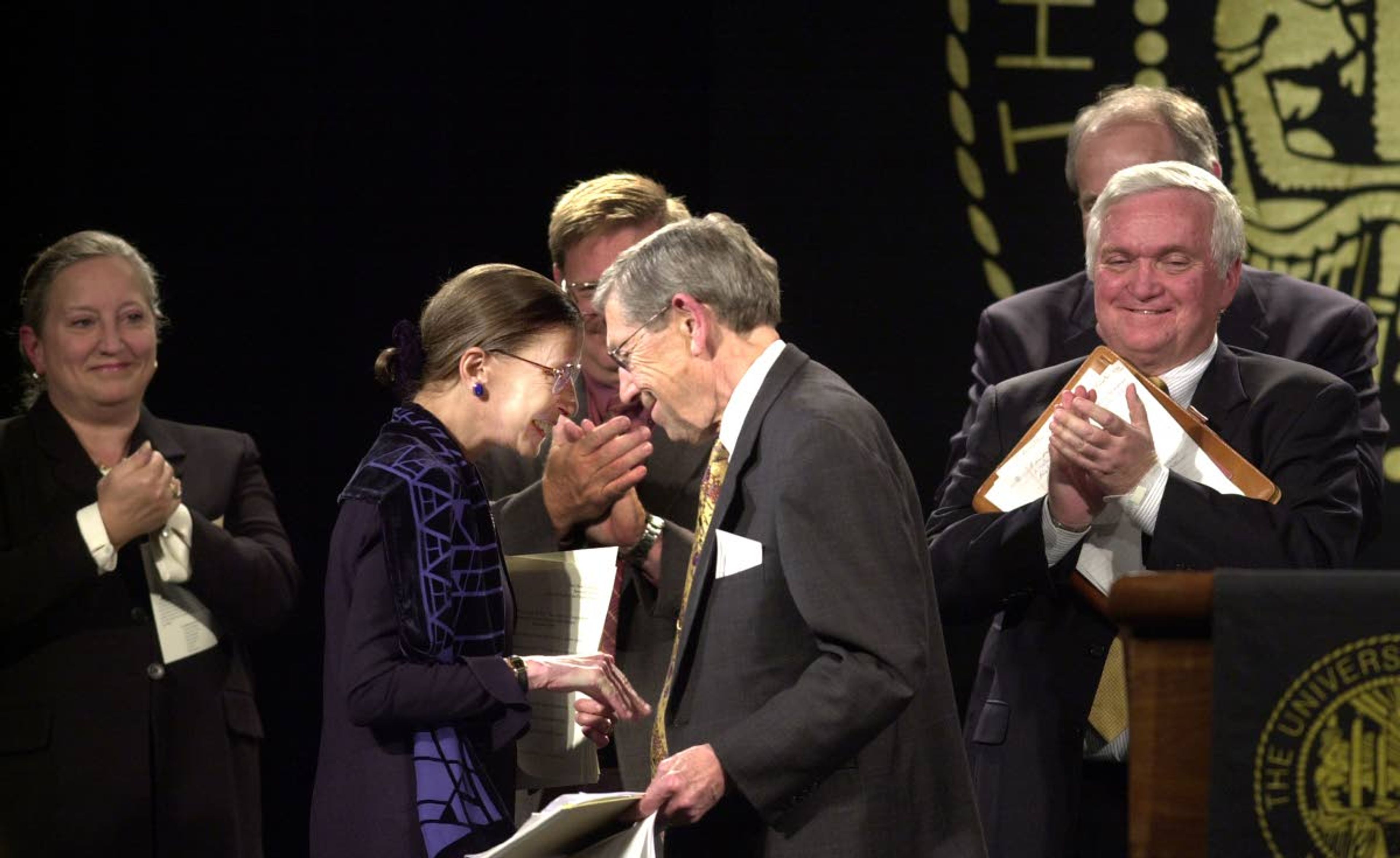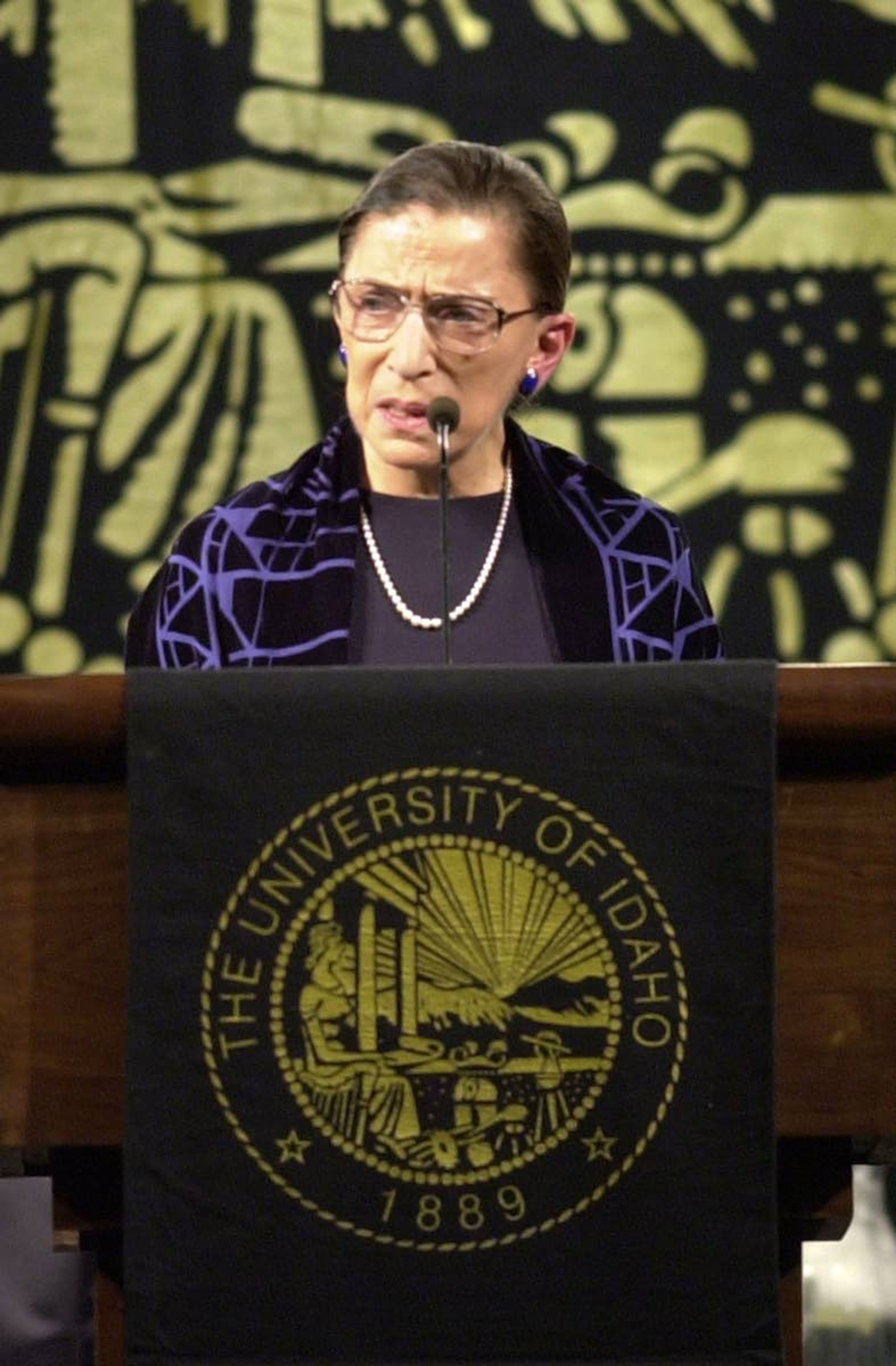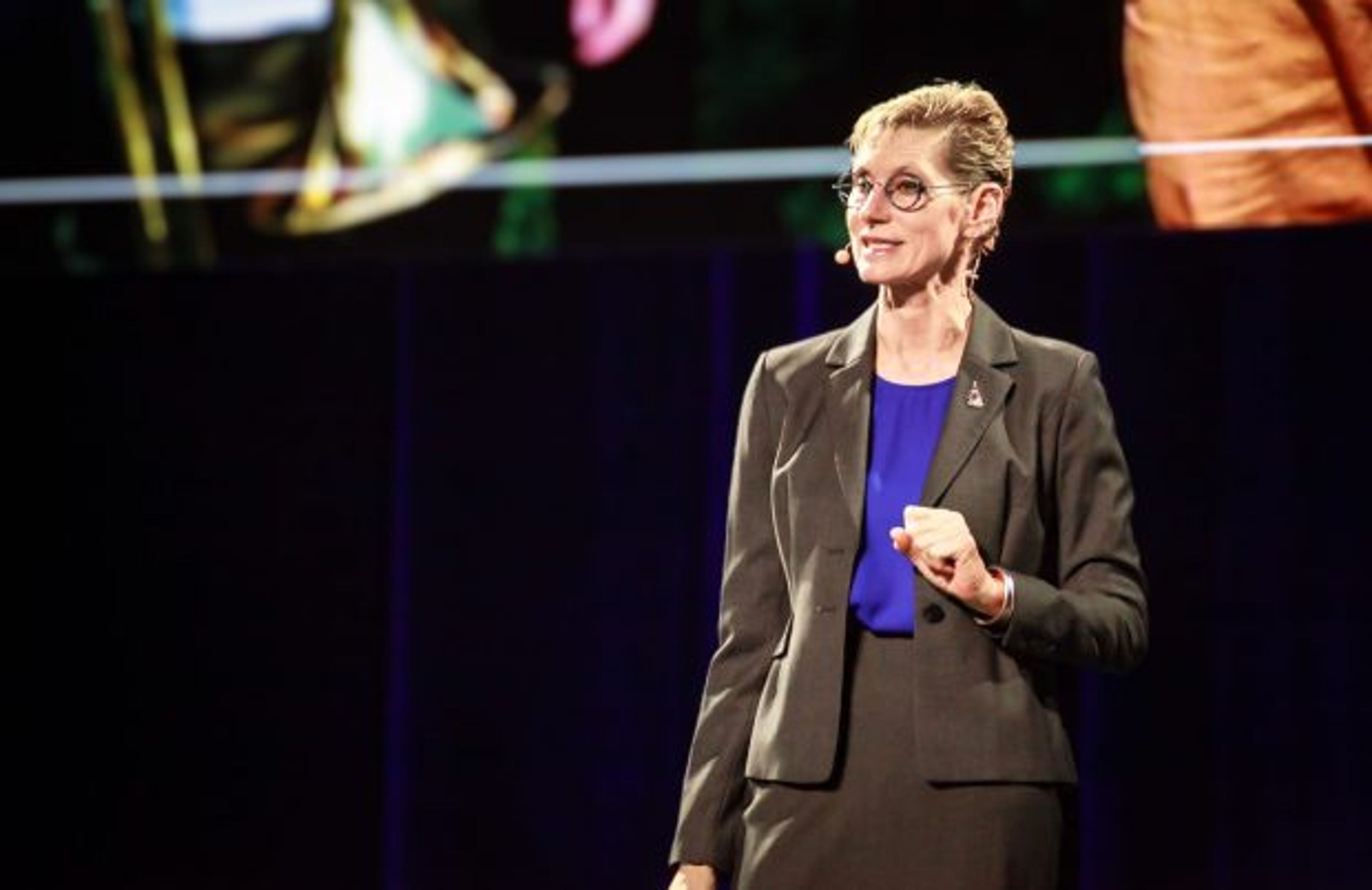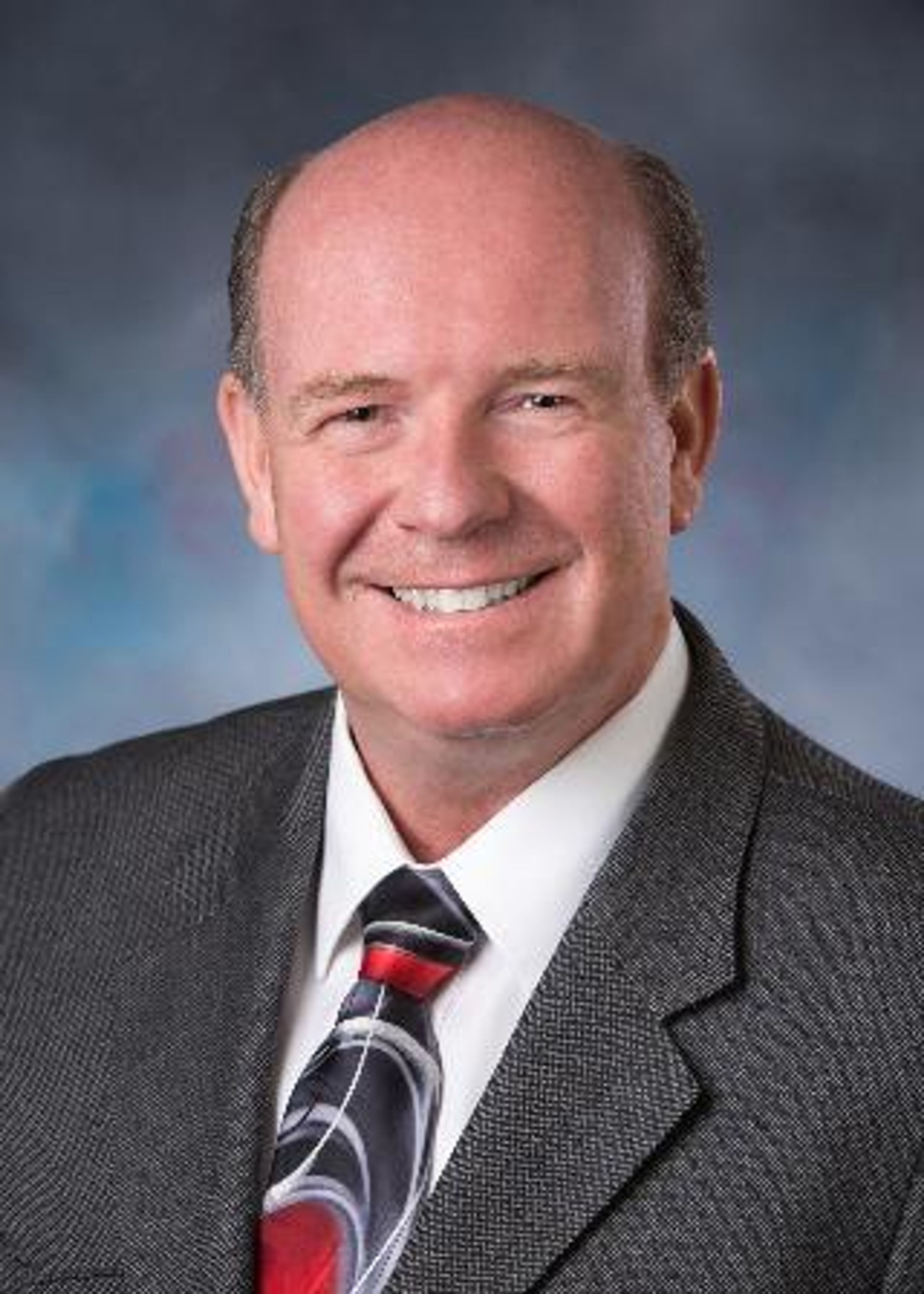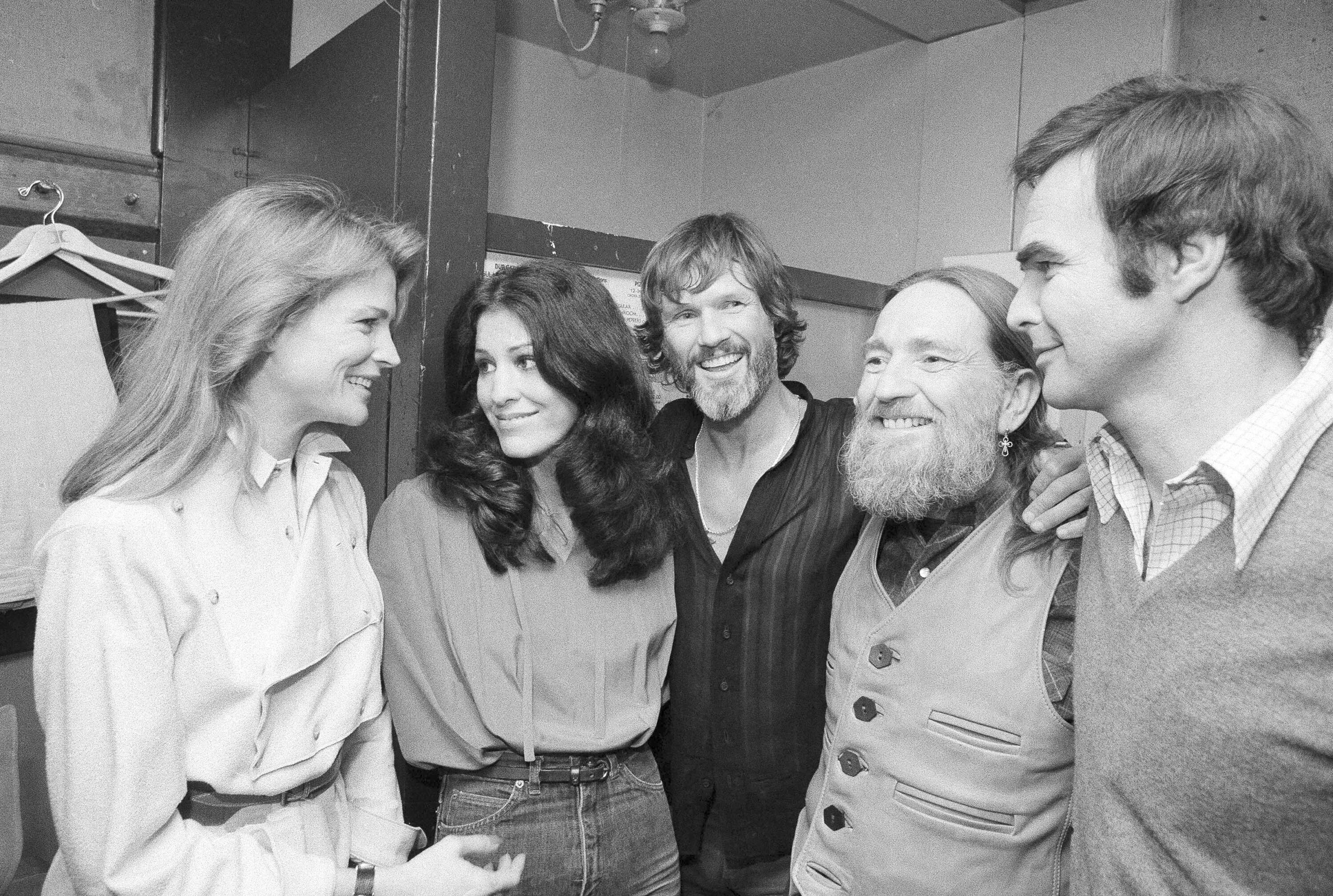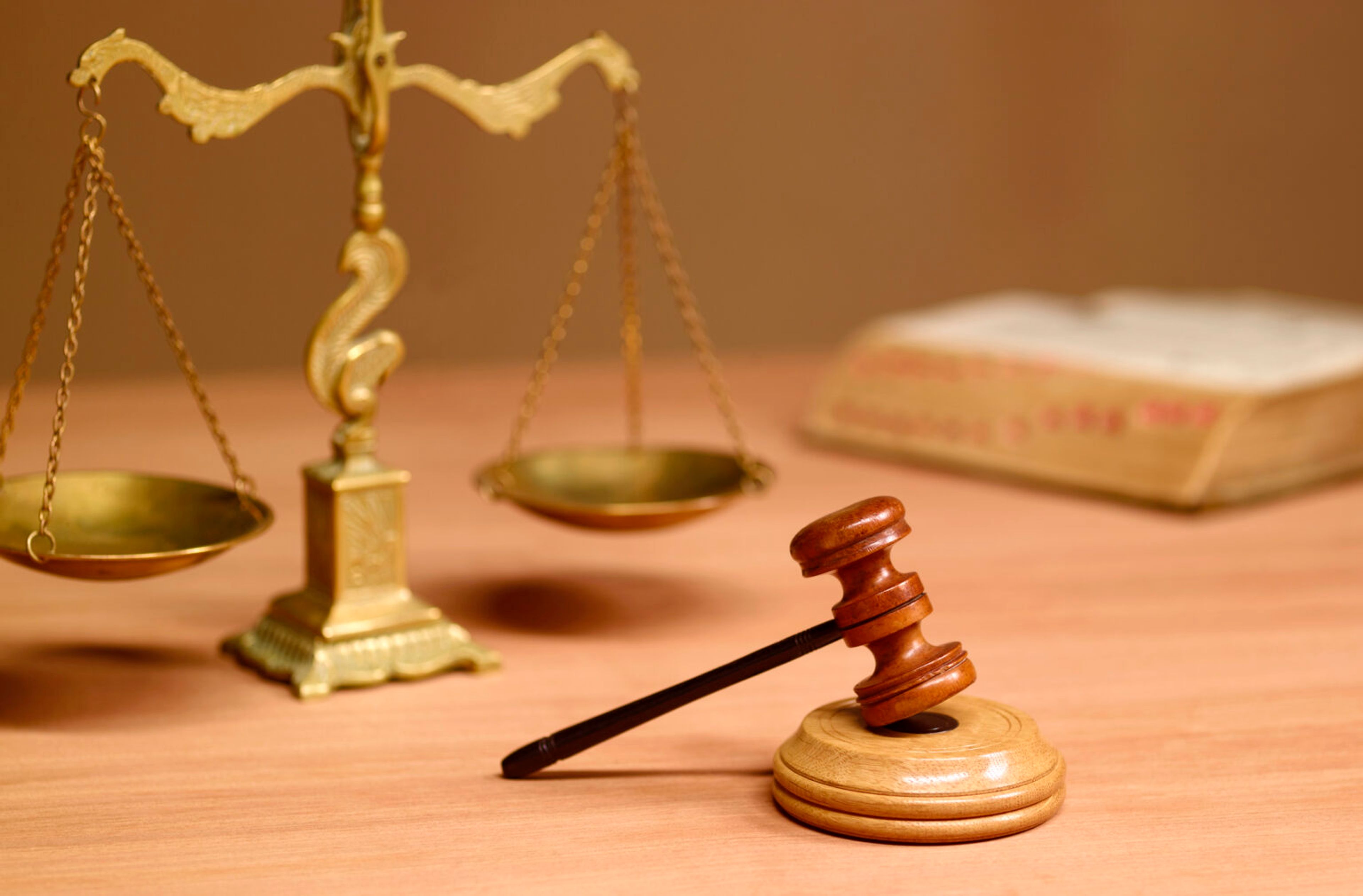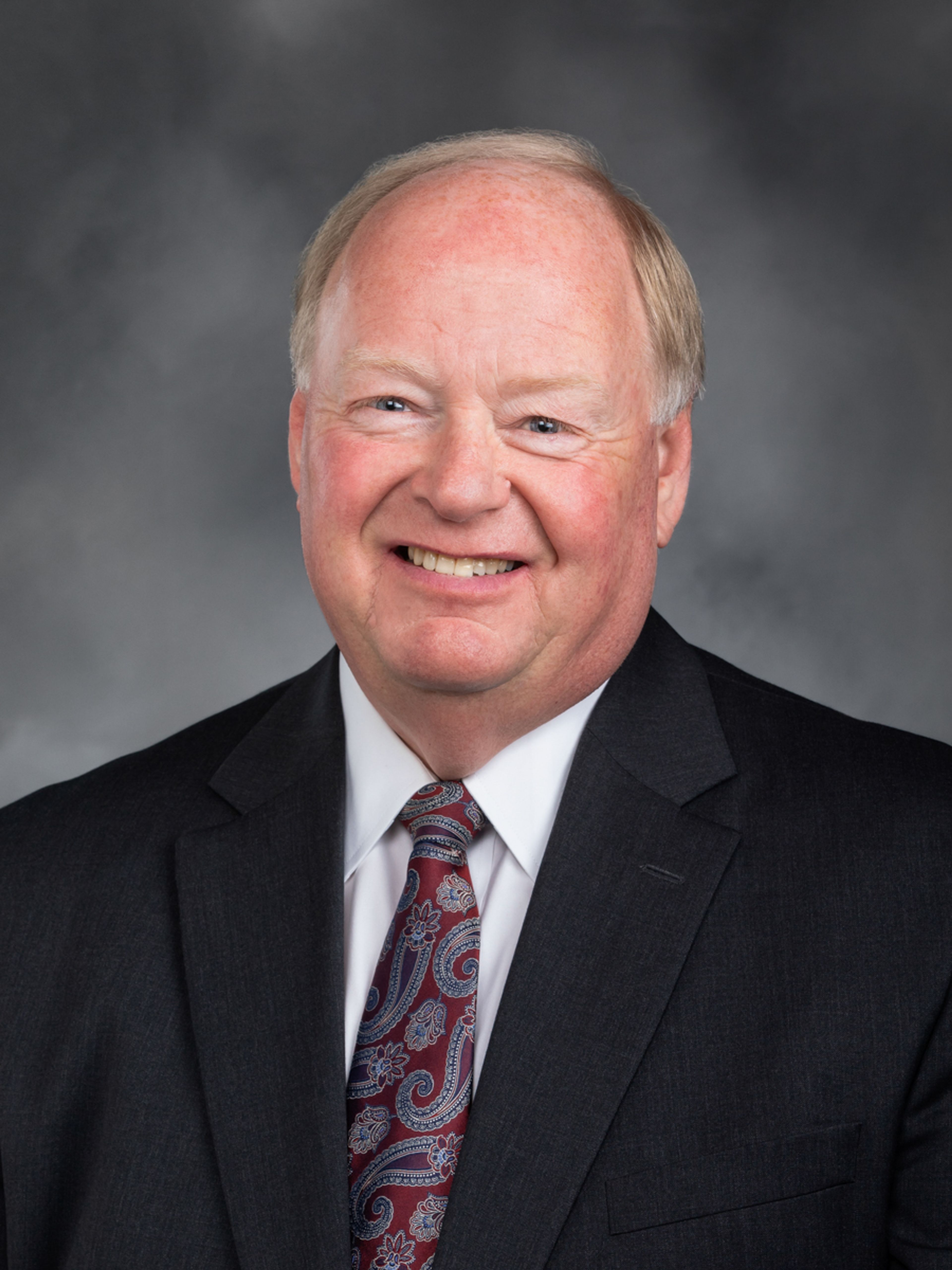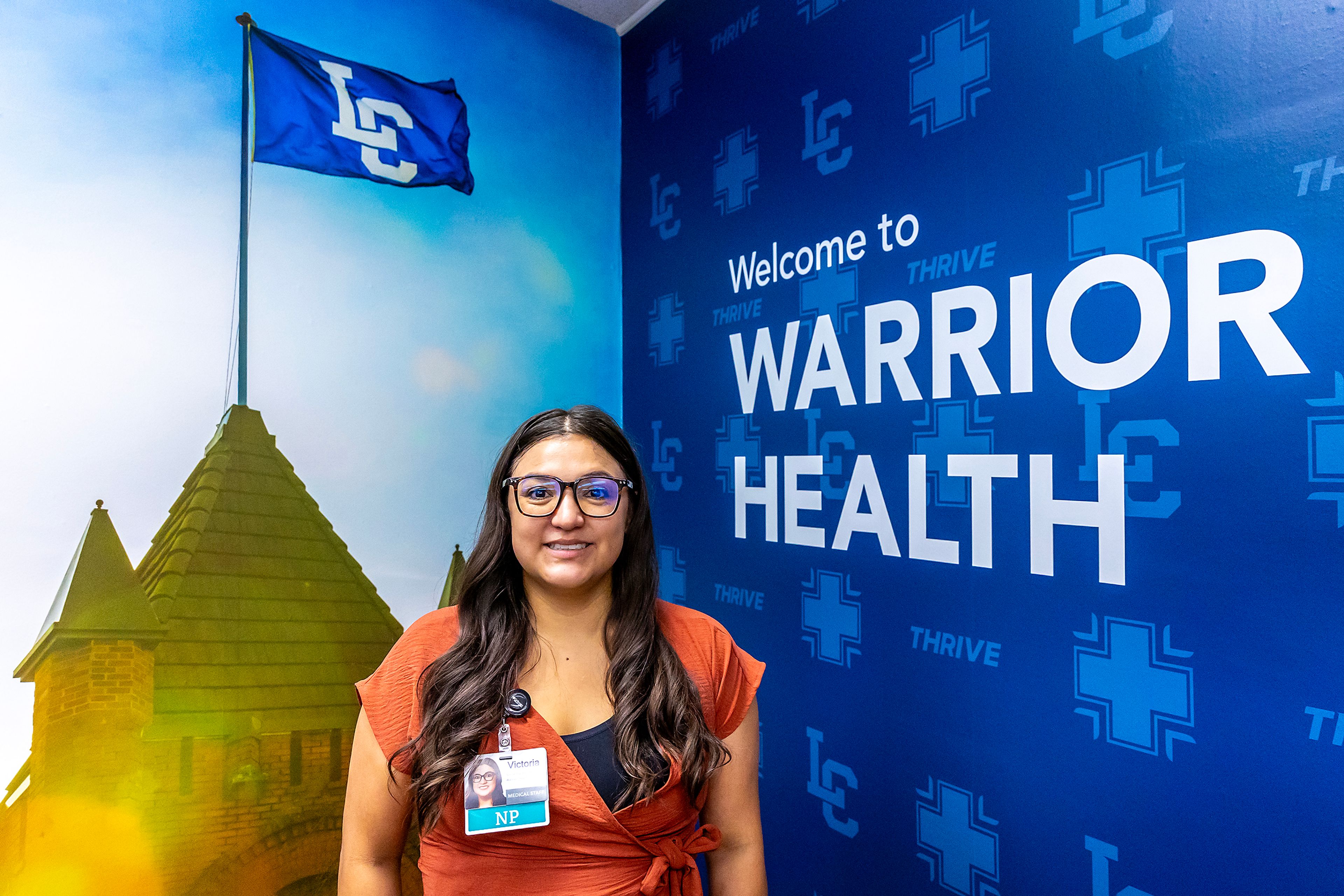This story appeared in the Sept. 19, 2003, edition of the Lewiston Tribune.
———
MOSCOW — The U.S. Supreme Court deliberations to decide the winner of the Bush v. Gore presidential election were the most tense in Justice Ruth Bader Ginsburg’s decade on the court, she told an audience at the University of Idaho Thursday.
The court stayed the Florida recount on a Saturday, accepted legal briefs Sunday, heard oral arguments Monday and released its decision Tuesday morning, Ginsburg recalled in response to an audience question.
“It was exhausting,” the Clinton appointee said. “It has been my most tense experience as a judge.”
The unprecedented decision that gave the presidency to George W. Bush seemed to change the court, Ginsburg, 70, suggested.
But when justices convened the following January for their regular session, “we proceeded almost the same as we did before,” she said.
“So my principal feeling is that despite a very strong difference of opinion, we held together as a court,” she said. “We remain good friends.
“Life at the court goes on almost as usual.”
She also recalled saying after the 2000 decision that she thought the Bush v. Gore case was an isolated one that likely would not set a precedent.
“The 9th Circuit certainly proved me wrong,” she joked, referring to the recent decision by that federal appeals court to stay the California governor’s recall election on similar grounds.
In response to another question, Ginsburg said the war on terrorism creates a struggle for the judicial system to balance civil rights with the desire for security. Throughout history, troubled nations including the United States have resorted to secret courts, she said.
“Our enemies will defeat us if our own deeply held values are not safeguarded,” Ginsburg said.
A judge for the Coeur d’Alene Indian tribe asked whether tribal courts will ever be considered on equal footing with state courts. Many cases involving Indian tribes come before the Supreme Court, Ginsburg said, adding she could not forecast future outcomes.
Ginsburg was the third Supreme Court justice to deliver the annual Bellwood lecture at the University of Idaho law school, joining Sandra Day O’Connor and Antonin Scalia. More than 1,000 people gathered in the UI Student Union Building Ballroom and adjacent Borah Theater to hear her speak.
In introducing her, attorney Allen Derr of Boise recalled that he worked with Ginsburg preparing arguments for the landmark 1971 Reed v. Reed case, in which the U.S. Supreme Court held that gender-based discrimination violated the equal protection clause of the 14th Amendment.
It was a precedent-setting case in the effort to secure equal rights for women.
Reed v. Reed involved an Idaho woman who was denied the right to execute her son’s estate in favor of her estranged husband, on grounds that Idaho law held that men were the preferred executors in such cases.
The Supreme Court ruled that law was wrong.
Before she began her career in the judiciary, Ginsburg was best known for her legal battles for gender equality and civil rights. She worked for the American Civil Liberties Union before being appointed to a federal appellate court. President Clinton named her the second woman on the Supreme Court in 1993.
Her prepared speech, “Looking Beyond Our Borders,” explored how the U.S. legal system is starting to look at decisions from other countries in considering cases involving gay rights and the death penalty.
The afternoon lecture was just the final public portion of a day-long visit to the UI campus for Ginsburg. She spent much of the morning speaking to and mingling with students and faculty at the law school.
“Students, primarily at the law school, need to hear that voice coming from a Supreme Court justice, telling the importance of gender equity, not just from the left but from a reasoned, wise person,” said Idaho American Civil Liberties Union board member Carole Wells, a Moscow defense attorney and graduate of UI Law.
Steve Contos, 24, of Salem, Ore., is a second-year law student at the UI. He said he was impressed by the lack of political bias Ginsburg showed during her visit.
“From my understanding in my brief reading about her, I thought she’d be a liberal,” said Contos, who identifies himself as an “objective liberal,” as he was filing out of the ballroom. “She disappointed those hopes with her remarkable ability to stay objective. She didn’t come across as a liberal, and she’s prized for that ability.”
The Bellwood lectures were endowed by Idaho graduate Sherman Bellwood, a longtime Idaho District Court judge who died in 1995.
